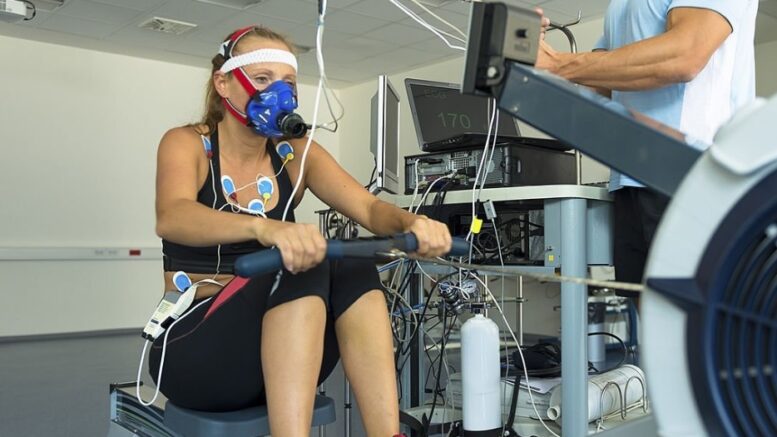Respiratory therapy is a growing and integral field within the healthcare industry, though many people don’t know much about respiratory therapists (RTs). To fully understand the work of respiratory therapists and the significance of their roles, we need to familiarize ourselves with the responsibilities they carry and the technical competencies they require. Join me in diving into the world of respiratory therapy. In this article, we will explore the functions that respiratory therapists perform, their primary objectives, the people they work with, and the consequences of their actions.
The Core Tasks of Respiratory Therapists
A respiratory therapist has various tasks and responsibilities. They are primarily healthcare experts that focus on diagnosing, treating, and managing patients who are suffering from respiratory illnesses. These diseases include chronic respiratory diseases such as asthma and bronchitis, as well as other health issues affecting the cardiopulmonary system, such as chronic obstructive pulmonary disease (COPD) and pneumonia. The therapist uses sophisticated medical equipment and employs a variety of therapy techniques to deliver this care.
In order to be prepared to take on these tasks, you will need an education. The pursuit of a respiratory therapist master’s degree is a fantastic idea. While a bachelor’s degree in respiratory therapy is the minimum educational requirement to enter the field, obtaining a respiratory therapy master’s degree can open up a world of opportunities and advancements in your career. A master’s degree in respiratory therapy is a specialized program that provides in-depth knowledge and advanced clinical skills beyond what is covered in a bachelor’s degree curriculum.
These medical experts work closely with physicians, typically as part of a team-based care structure. They need to be prepared to communicate with patients that have different backgrounds, health statuses, and age groups, from infants struggling with premature births to elderly individuals battling with chronic lung disease. Part of their role is providing education to patients and their families about treatment plans, ensuring they understand the purpose of the prescribed interventions.
Key Objectives of Respiratory Therapists
The work of a respiratory therapist is directed toward achieving specific goals. The most important of these is to improve the patient’s breathing. They are focused on ensuring that patients maintain an optimal level of comfort, particularly those who are in intensive care units (ICUs), the emergency room, or are undergoing surgery. They are also in charge of responding to code blue or other urgent respiratory call-outs.
Respiratory therapists also aim to educate and comfort patients and their families. Respiratory disorders can be distressing for patients and confusing for their families. It’s crucial to explain clearly the nature of their condition, recommend potential treatment options, and reassure them throughout their treatment process. This function goes beyond administering primary care—it requires therapists to display empathy and maintain strong communication skills. The reward for this hard work is a fulfilling career, above-average salary, and excellent job security.
Collaboration is Key
A part of a respiratory therapist’s work involves collaborating with other healthcare professionals. Medical care is not a solo effort—it requires the collective skills of a multidisciplinary team. Respiratory therapists cooperate with doctors and nurses to develop and implement treatment plans. This teamwork often leads to more comprehensive care for patients as it enables the combined strengths of different medical professionals to address a wider range of patients’ needs.

Patient care also often requires the involvement of numerous medical specialists. Respiratory therapists collaborate with a team of physicians, clinical nurse specialists, nurse practitioners, and other healthcare professionals. This collaboration presents opportunities for continuous learning and improvement as their knowledge and experience are challenged and broadened.
Furthermore, the role of respiratory therapists extends to playing a pivotal part in hospital emergency response teams. Responding to respiratory emergencies demands rapid decision-making and the efficient execution of medical procedures. As such, respiratory therapists must nurture a strong working relationship with their colleagues to ensure seamless delivery of emergency care.
The Impact of Their Work
Respiratory therapists make a profound difference in the lives of patients suffering from breathing disorders. Their work directly influences patient comfort levels and recovery rates. By optimizing respiratory function, they improve patients’ overall well-being and quality of life. This can be a particularly rewarding aspect of their job as they have the opportunity to see the positive impact of their work firsthand.
Their contributions extend beyond immediate patient care. By educating patients and families, respiratory therapists indirectly help to prevent future respiratory complications and assist in promoting healthier lifestyles. Their pivotal role in emergency teams impacts the success of the hospital’s response to major issues. By seamlessly merging their skills with those of their colleagues, they ensure high-quality emergency care, thereby enhancing the hospital’s reputation and trustworthiness.
Conclusion
As this article illustrates, respiratory therapists play a role in patient care. They improve patients’ quality of life by managing and treating respiratory conditions, educating patients and families, working closely with other healthcare providers, and responding effectively to critical incidents. Their work requires technical knowledge, strong interpersonal skills, and a deep sense of empathy, making them an indispensable part of any healthcare team.
